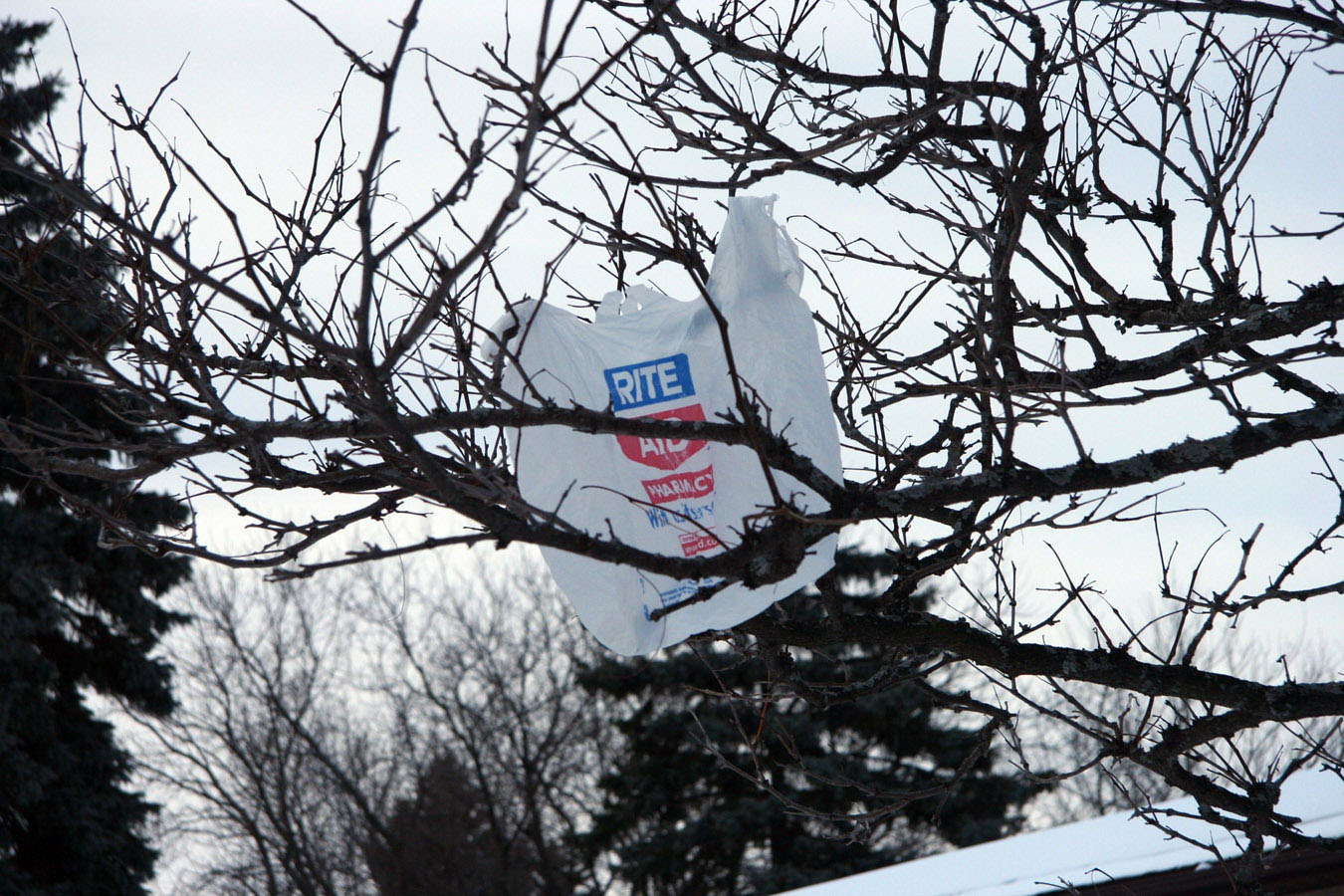Health Minded May 2010 
EarthTalk®
From the Editors of E/The Environmental Magazine Dear EarthTalk: How effective have plastic bag bans and restrictions been on reducing plastic litter and other problems associated with their proliferation? And is it really better to use paper bags, which will just lead to more deforestation? -- Peter Lindsey, New Canaan, CT Plastic bags, first introduced in the 1950s as a convenient way to store food, have since developed into a global scourge, littering roadsides, clogging sewer drains and landfills and getting ingested by animals and marine life. And in recent years we’ve discovered how they are so prolific that they now comprise a significant portion of the plastic and other garbage that has collected in huge ocean gyres far from land. A few countries around the world—Bangladesh, China, India, Australia, Greece, Ireland, Italy, Israel, South Africa, Taiwan and Mumbai, among others—have taken stands against plastic bags through taxing their usage or banning them outright. The environmental think tank, Worldwatch Institute, reports that China’s decision to ban free plastic bags in 2008 has cut demand by some 40 billion bags, reduced plastic bag usage there by 66 percent, and saved some 1.6 million tons of petroleum. In March 2007, San Francisco became the first (and is still the only) major U.S. city to implement an across-the-board ban on plastic bags. Large supermarkets and pharmacies there had to ditch plastic shopping bags by early 2008 in favor of paper bags or those made from all-natural biodegradable cornstarch-based plastic. Environmentalists are particularly fond of the latter option for those who don’t bring their own grocery bags, as these cornstarch bags offer the biodegradability of paper without the deforestation as well as the convenience of plastic without the damage to ecosystems. San Francisco officials had originally tried to work with retailers on reducing plastic bag use voluntarily. But after a few years of little or no cooperation, they decided to just institute the ban on anything but biodegradable bags. The result has been a 50 percent drop in plastic bag litter on the streets since the ban took effect. Los Angeles followed suit and its city council voted in 2008 to ban plastic bags beginning in July 2010—but the ban will only take effect if the state of California doesn’t follow through on a statewide plan to impose a fee on shoppers who request plastic bags. City council members in L.A. hope the ban will spur consumers to carry their own reusable bags and thus reduce the amount of plastic washing into the city's storm drains and into the Pacific Ocean. Several other U.S. cities, including New York, Philadelphia and Baltimore, have considered outright bans like San Francisco’s, but each settled instead on plastic bag recycling programs in the face of pressure from the plastics industry and retail commercial interests. While increased demand for paper bags in the wake of plastic bag bans could lead to more deforestation, most paper grocery bags in use today are made from recycled content, not virgin wood. Also, an added benefit of paper over petroleum-based plastic is its biodegradability. Americans go through some 92 billion disposable plastic bags each year, and only five billion paper ones. If the nation banned plastic bags it is likely that paper varieties would only make up a small part of the difference, in light of the proliferation of reusable canvas shopping bags as well as the availability of biodegradable cornstarch plastic. CONTACT: Worldwatch Institute, www.worldwatch.org.
Barbara Ireland Walk for the CureA Note from Barbara IrelandBarbara Ireland invited Santa Barbara locals to join her, her husband, John, and her daughters on Saturday, April 24th for the Tenth Annual Barbara Ireland Walk for the Cure. 250 walkers/joggers walked with her. Being part of this incredible experience is more than an investment in your personal health - you will also be supporting innovative research focused on the prevention of breast cancer. The facts are daunting and require action - approximately 3 million women in the United States are living with breast cancer. A woman in the U.S. has a one in eight chance of developing invasive breast cancer during her lifetime. This year, a new case of breast cancer will be diagnosed every two minutes and a woman will die of breast cancer every 13 minutes. They did reach their goal this year -- congratulations!
|





